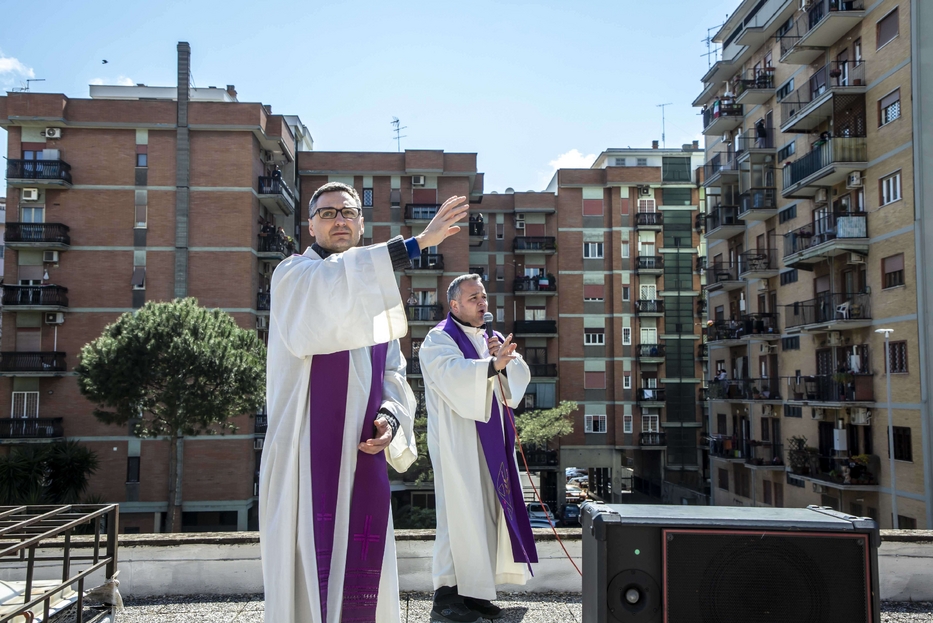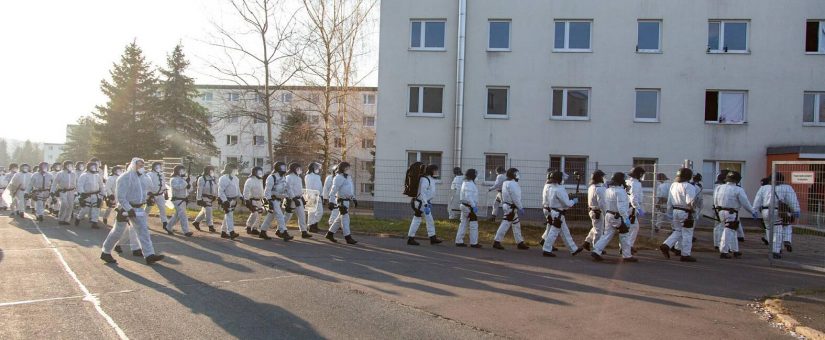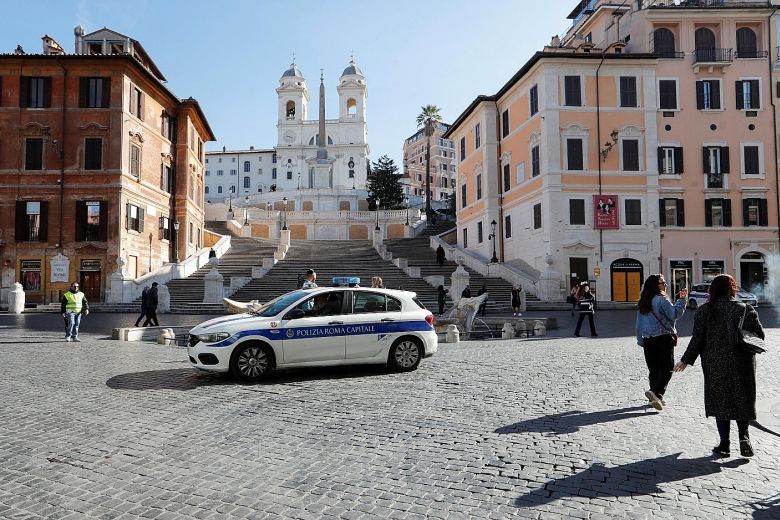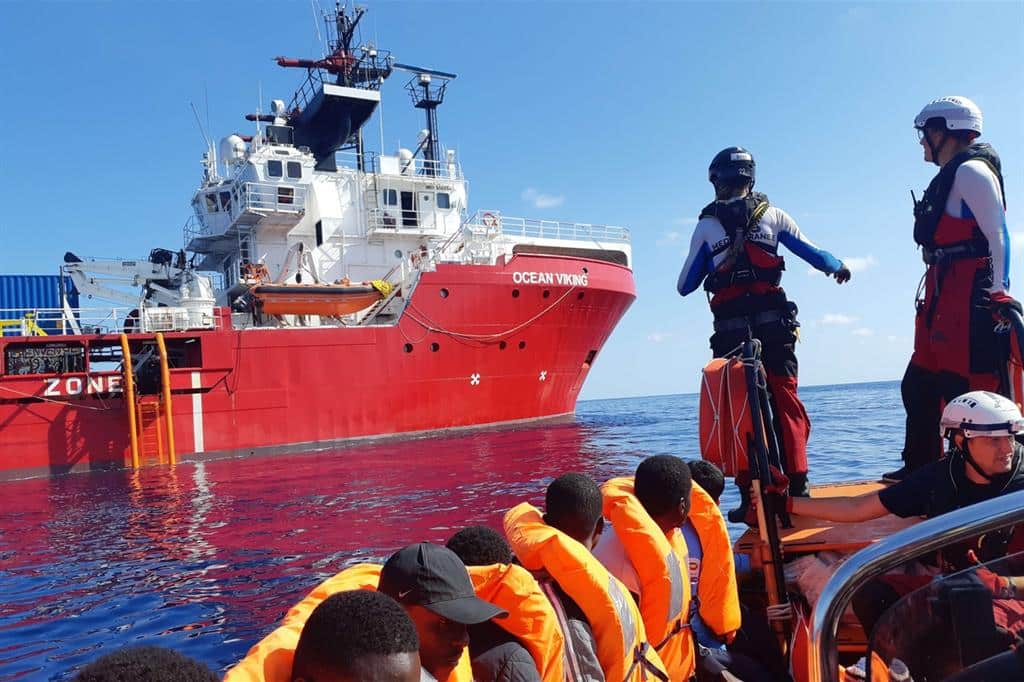Amazon
NOTICE
Republishing of the articles is welcome with a link to the original post on this blog or to
Italy Travel Ideas
Sunday, 7 June 2020
Coronavirus Italy. Prayer to Mary from Rome Rooftops
By Enza Ferreri
This article was published here: Coronavirus Italy. Prayer to Mary from Rome Rooftops
We've previously posted about how Coronavirus Italy consecrates many of its cities to the Virgin Mary.
And, when Italians in Coronavirus times were not allowed to go to church to attend religious services because of the self-isolation lockdown imposed on them, the church was going to them.
This is what the Parish of Santa Giulia Billiart in Rome has done.
In Tor Pignattara, a historic working-class – now rediscovered by the middle class - district (“borgata”) of South-East Rome whose origins started in the Early Middle Ages, every day at noon, bells ring and a Marian song rises from the Parish of Santa Giulia Billiart.
It is the signal, the “voice of Mary” calling the aerial congregation across the roofs to prayer. The windows open, small balconies fill up to join the Supplication to Our Lady of Pompeii from people’s own homes.
On the rooftop terrace of the parish church complex, surrounded by the apartment blocks above it, the three priests who guide the community in the Tor Pignattara area, don Manrico, don Eugenio and don Luca, appear.
Wearing the purple stole, they recite the prayer in front of a microphone that through speakers sends the invocation to the inside of apartments. Then a brief reflection. Follows the leave-taking, accompanied by greetings bouncing from one window to another, until someone asks his neighbour: "What have you cooked for lunch?"
Tor Pignattara is home to six thousand people, of whom one third are – you might have guessed it - Muslim. In recent years, like so many other European cities’ suburban areas, it has undergone a population replacement.
Since the mid-90s, Tor Pignattara has received many migrants, especially from Bangladesh, India, Pakistan, China and Africa. But the most numerous are the Bangladeshis, hence its nickname “Banglatown”.
This Christian service initiative in Tor Pignattara was born as a spiritual response to the “flash mobs” which in these lockdown times animate Italian balconies around 6pm, when Italians normally go out for a “passeggiata” in the main street, and which have been seen in the media around the world.
"In times of difficulty Rome has always turned to Our Lady and invoked her protection” says the parish priest, Don Manrico. Interviewed by Avvenire, the Italian Bishops’ Conference newspaper, he explains that the three priests asked themselves: "Why, alongside moments of relaxation to share together, not propose a collective religious rendezvous?" Hence the Marian noon prayer, the special hour of devotion to the Virgin, the 10-15-minute-long bridge between homes.
The parish priest says that they want to stay close to the community and not let people feel alone but allow them to express their faith in a simple but intense way.
The parish remains a point of reference for the neighbourhood: “We are almost a village within the metropolis. When the rumour circulated that Rome churches were closing, many told us that they felt lost. Our church is always open. And we priests are inside or in the churchyard. Even if few are those who enter, the community perceives it as a beacon in the midst of darkness.”
SOURCES
Avvenire
With thanks to Corrispondenza Romana
Saturday, 6 June 2020
Globalisation and Multiculturalism in Coronavirus Times
By Enza Ferreri
This article was published on Italy Travel Ideas
Many European countries have been seriously affected by Covid-19.
The idea that the movement of great masses of people from their places of origin to new countries could not give rise to critical, not to say disastrous, consequences has now, with the new pandemic, been put to the test more than ever. And we know it has miserably failed the test.
First of all, without globalisation the spread of a virus or another kind of epidemic could have remained localised. The globalisation that is sought after by economic and political powers has made the current pandemic of Coronavirus possible.
Immigration between continents has macroscopically and starkly displayed all its risks and dangers - and not just for the migrants - even to those who’ve been obstinately refusing to see them.
But that’s not all. The response to a pandemic requires the fabric of a society to be compact: everyone is asked to impose restrictions on himself for the collective good, as well as his own.
What’s been happening in these days in Italy, France, Spain and Germany is showing that a society with large numbers of unassimilated, unintegrated migrants is not such a collective body that can count on reciprocal ties and a sense of belonging to the same community and sharing a sense of responsibility towards it.
In all the afore-mentioned countries, which have strict containment and isolation regulations for the whole population, there have been cases of immigrant neighbourhoods or groups who have rebelled against these rules, behaved as if norms of home confinement and of keeping at least one-metre distance between people when out of doors didn’t exist, and who finally became aggressive towards authorities who asked them to comply with the quarantine order, thus endangering everybody.
French commentator Eric Zemmour reported that his country’s migrant neighbourhoods have responded to the Coronavirus crisis by rioting and looting supermarkets, and he talks about addressing “the migrant community’s dangerous and violent refusal to cooperate voluntarily with measures to control the spread of contagion”.
Something similar is happening in Italy, where migrants have been seen crowding the streets deserted by Italians, who force themselves to remain indoors.
In Spain, migrants at the Immigration Centre of Aluche, Madrid, rioted against the confinement of Coronavirus. They climbed on the roof crying "freedom, freedom" and announcing the start of a hunger strike.
In Germany on 16 March, 10-20 residents of the centre for asylum seekers in Suhl in the state of Thuringia rioted, climbed over the perimeter fence, threw missiles at emergency services and police. They also removed manhole covers in an effort to escape and reach the city through the sewer system, and threatened to burn down the asylum seekers centre.
The next day, about 30 residents gathered near the main gate waving ISIS flags and tried to break down the gate, while they used children as human shields by placing them in the first row.
The over 500 residents of the facility as well as all staff had been quarantined since Friday 13 after a man in the centre tested positive for Coronavirus. The measures have led to several days of disturbances, according to the RTL broadcaster.
In Italy too there have been cases of migrants with Coronavirus infection in asylum seekers centres, for example in Milan and Bologna. In these areas many complaints have been recorded about migrants who, much more regularly than Italians, did not respect the confinement and quarantine regulations.
The current, unforeseen crisis also paints a clear picture: our European societies are not as strong, indestructible as we and the people who came here from the Third World thought. We may now discover that we don't have the resources to cope with this pandemic created by globalisation and worsened by uncontrolled and illegal immigration with all the social chaos that it involves.
SOURCES
France and Germany Coronavirus Norms Migrants Defiance
France Immigrant Districts Not Complying with Coronavirus Norms and Measures
Coronavirus Spanish migrants riot
Germany Immigrant Centre Riot
Police Video Conference of Germany Immigrant Centre Riot
Italy Bologna Migrants Centres Coping with Coronavirus
Italy Milan Infection in Migrant Centre
PHOTO CREDIT
RAIR Foundation
Wednesday, 3 June 2020
Coronavirus, Meningitis Tell Us Without Borders We Die
By Enza Ferreri
This article was published on Italy Travel Ideas
While all the attention is on Coronavirus, there is another illness that has been on the increase in Italy: meningitis, a disease of generally infectious origin.
Meningitis Risk from African Migration to Italy
Italian doctor Alessandro Meluzzi, while speaking on the topic of coronavirus, also said:
I want to remind everyone present of something that nobody remembers: the very strong growth of meningitis in Italy, especially in Tuscany, is related to the fact that the type C meningococcus [meningococcal type C bacterium], which almost did not exist in Italy, comes from the meningococcus belt. That is the Sahel, from which 90% of African migration to Italy originates.He concluded by saying: “Let's try to tell that to the President of the Tuscany region. What I mean is that boundaries, like cell membranes, serve to survive.
"It is not a question of racism, this is not the problem, but that of stopping viruses and bacteria, otherwise we are delirious.
"Without borders we die. As cells need membranes and the immune system needs antibodies, borders are necessary for survival."
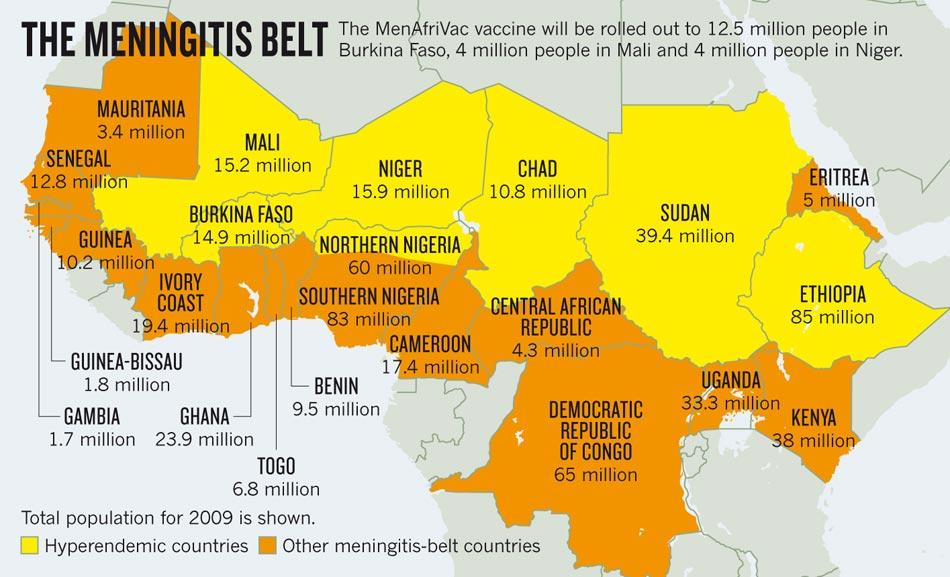 Meningitis Belt, in Africa
Meningitis Belt, in AfricaLike Other Parts of the Natural World, We Are Not Interchangeable
Doctor Meluzzi is right.
The idea of a globalised, borderless world is a dystopian view, totally unrealistic and, if tried to put into practice - as many forces are trying at the moment, against people's will - it will lead to chaos and highly destructive consequences.
There is a reason why the various peoples, nations, ethnic groups have spontaneously formed and united themselves into separate societies.
Smaller polities are always easier to manage. This is why larger states are divided into federal states, then counties, provinces, regions and so on.
This is the way men naturally organise themselves, it is an organic process, not one dictated from above like the "one world" idea.
Nature doesn't exist just outside of us. It exists inside of us too.
We worry not to break the balance of non-human nature, what is generally known as the environment or the ecosystem.
But then, paradoxically or at least unreasonably, our culture's dominant ideology (although not shared by most people) holds that human beings are flexible and pliable to a fantastic point, for example holds that a person's sex can be chosen or changed.
Similarly, this powerful ideology maintains that the naturally-developed, organic human societies that have grown out of family and blood ties, together with a shared history, culture and, more importantly, religion, are not necessary and can be replaced by a global society with a world government.
In this view, humans are seen as pawns in a game of draughts or chess, which, being all the same, can move or be moved from one part of the world to another without any serious consequence.
A hypothesis that we are now experimenting on ourselves with disastrous effects.
SOURCE
Meluzzi: I confini servono a sopravvivere
PHOTO CREDIT
Streets of Italy Deserted
Tuesday, 2 June 2020
Italy: How a Coronavirus Crisis Became a Disaster
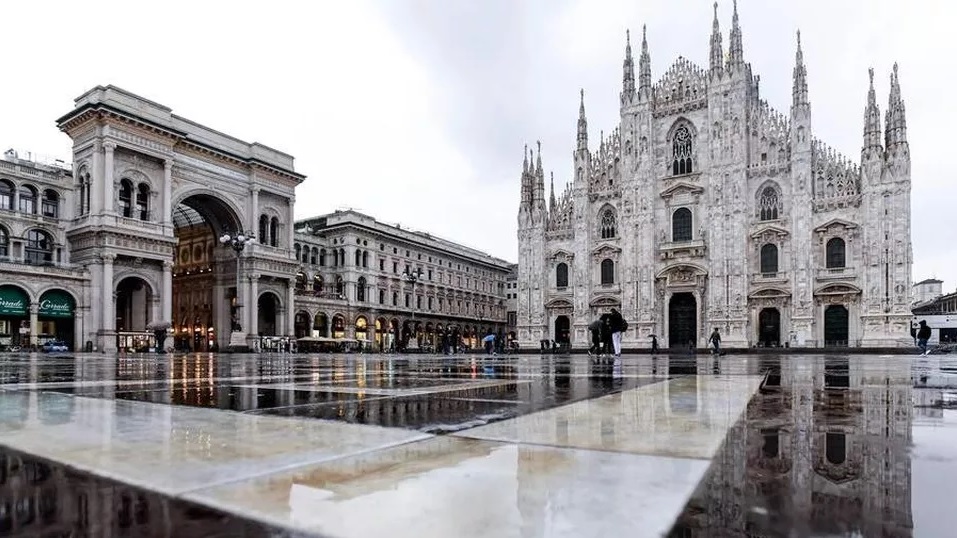
By Enza Ferreri
This article was published on Italy Travel Ideas
Italy early in the coronavirus crisis was the first country in the world for number of Covid-19 cases, with its number of confirmed infections increasing very rapidly day by day, and the whole country was placed under lockdown, as is well known. It is important to understand what happened to provoke this exceptional crisis.
In a previous article we saw that, for fear of labels of racism, by not having quarantined all people coming from China, a measure recommended by the World Health Organisation and followed by many nations, the Centre-Left Italian government has opened the door to the epidemic.
Then we saw that the uncontrolled immigration that for a long time has particularly hit and shaken Italy among the countries of Europe, in addition to bringing security and crime risks posed by undocumented migrants' free circulation, has now turned into another possible dynamite waiting to explode: due to China-Africa close trade ties and the vast presence of Chinese in the continent, Africa can become an incubation venue and transmission channel for coronavirus, which means that lots of African immigrants to Italy may be carrying Coronavirus.
The migrants arriving in Italian ports may have the coronavirus without their knowledge - and without ours. And still without their knowledge they could contribute to spread it throughout Europe.
The consequences, in that case, would be potentially lethal given the absence of sanitary bulwarks in almost all African states.
The infection might spread to Europe through Africa perhaps via Italy.
African Countries at Risk
The director general of the World Health Organization (WHO), Tedros Adhanom Ghebreyesus, was very clear when he said that the "biggest concern", in addition to the epidemic itself, is that the virus may reach "countries with weaker health systems" least able to contain it, and the whole of Africa undoubtedly falls into that category.
Although, when news of the epidemic from China first started spreading, there were no confirmed cases of Coronavirus in Africa, there are now, and escalating fairly quickly.
Doctor Giovanni Rezza, specialised in hygiene and in infectious diseases, senior scientist at the Istituto Superiore di Sanita' (ISS) in Rome, and Director of the Department of Infectious, Parasitic and Immune-mediated Diseases, has confirmed that Africa could represent a problem: it is a very populous continent, he said, and has fragile and weak points in the health chain:
African states do not have the same network as European laboratories. And the various types of fever that people can get could be confused with other infections and not be recognised as Coronavirus. This is why international organisations should be on the alert.Africa, except for a few specialised centres, does not even have the means to recognize this new virus.
Health authorities and researchers fear that the Coronavirus could circulate undetected in Africa, where less advanced health systems could quickly be overwhelmed by a local outbreak.
It's therefore necessary to close the Italian ports to migration.
PHOTO CREDIT
La Gazzetta di Reggio
Wednesday, 27 May 2020
Coronavirus Exposes Open Ports to Africa Danger
By Enza Ferreri
This article was published in Italy Travel Ideas and is our second post on the subject, here's the first on Coronavirus and Italy.
Italian physician and psychiatrist Alessandro Meluzzi rightly described as paradoxical Italy's current policy of "closed schools and open ports", letting in migrants at such a time of emergency for Coronavirus (whose official name, which initially and temporarily was 2019-nCoV, has from early February become Sars-CoV-2, also adopted by the European Centre for Disease Prevention and Control (ECDC), while the disease it causes is called COVID-19).
If we don't close our borders others close theirs, Dr Meluzzi added.
This happened, in fact, and China itself was among the countries isolating Italy.
Dr Meluzzi was making correct predictions as early as 31 January, when he said in an interview:
"My feeling is that the Italian situation is already totally out of control".
He added that he considered with great concern the hypothesis of the spread of Coronavirus on the African continent:
"When the virus arrives in Africa, where countries do not have adequate health coverage to deal with the epidemic, this could spread in a potentially catastrophic way".
He referred to the great number of Chinese workers and companies in Africa, "which create a large flow of trade with China, especially with the industrial area from which the epidemic originated", concluding: "I dare not imagine what could happen in Africa."
From China to Europe via Africa
The African "bomb" became a later alarm about Coronavirus and its further spread in the world.
There are two factors that greatly elevate the potential risk of contagion: one is the thriving trade relations between China and Africa, the other is the uncontrolled immigration that from Africa regularly arrives in European countries overlooking the Mediterranean Sea, particularly Italy.
Let's be frank: when we say "uncontrolled", it is very literal. We know nothing of many, indeed probably the great majority, of people landing on our shores from smugglers' boats and NGO ships, since they have no documents or false documents. In a very high number of cases we don't even know their name, let alone their past history, criminal record and health status. The newspaper Il Giornale wrote:
Italy hosts immigrants at its own expense without having the slightest idea who they are. To know their stories, we rely on the stories given by them in front of the various commissions.
For their personal identities, we are satisfied with having them put their name and surname in writing the moment they disembark...
In Italy, in fact, thousands of people arrive who can carry with them cell phones but never a shred of an identification document.
Hardly Any of the Arrivals Are Refugees
There have been cases of fake refugees who disclosed to the media that they paid thousands of euros to obtain ways to claim asylum status.
For a long time Italy has been literally overwhelmed by would-be asylum seekers and migrants. A Nigerian interpreter and "cultural mediator", calling himself Uchenna, has explained how it works:
To judge asylum seekers there should be 4 people for each commission [called 'territorial commission'], who include representatives for the UNHCR (UN Refugee Agency), Italian police and local authorities. Now, there are only 1 or 2 left to follow the interview because there are several organisational problems... so many requests arrive that if they were all present at each interview, it would never end. The system is practically collapsing.This means that in some cases the waiting times for obtaining the opinion of the commission can be extremely long. Meanwhile, Italy hosts many immigrants at its own expense, who will then never obtain refugee status. And they are a very high number. Says Uchenna: "The majority of those who are arriving on the Italian coast from Nigeria certainly do not run away from dangers: they are looking for money and success to be able to return home one day and strut the wealth achieved".
He explained that to do this, therefore, many times they invent stories of suffering and persecutions that they have never undergone: "I often hear the same identical story told by different immigrants".
Asked why everyone coming to Italy on the migrants' boats is undocumented, the interpreter answered: "Those who land in Italy say they never had a document or lost it in Libya. In Nigeria, falsifying documents and changing identity several times is normal. They do the same during recognition in Lampedusa".
But in Italy, he says, the 'poor thing' rule applies, explaining: "In the commissions we hear them say of every tale: 'Oh, what a poor man'. Yet these people often only tell lies."
Migrants, particularly those who seek asylum under false pretence, are also known for cutting, abrading and burning their fingertips to prevent identification.
Anna Bono, former University of Turin researcher in Africa's History and Institutions, who has long lived in Africa and has worked with the Italian Foreign Ministry, sums up the situation:
We now know with certainty that 95% of the foreigners who land in Italy are not refugees: they are not people exhausted from extreme poverty, they are not people who have escaped death threats, torture, deprivation of human rights.Prof Bono says that the vast majority of asylum seekers do not get asylum because they are not persecuted at home, nor are they fleeing wars.
They come from southern Nigeria, Senegal, Ivory Coast ... they are illegal immigrants. In 2016, 181,045 arrived, 123,482 of whom applied for asylum. The territorial commissions examined 90,473 requests, accepting 4,940 of them, namely 5.4% of the applications examined, 3.9% of those submitted and 2.7% of the total landings.
However, not all applicants rejected over the years have left Italy. Many of both fake asylum seekers and illegal immigrants remained in Italy, escaping the control of the authorities and often disappearing. With the "residence permit for humanitarian reasons" many have been allowed to live in Italy in hiding, doing illegal jobs or illegal activities.
Therefore it's not surprising to know that 1 in 3 inmates in Italian prisons is foreign. This gives some indication of a serious problem of security in the country, a danger that has been in existence for a long time.
Yet again, it should come as no surprise that people with no official identity, no ties with the larger community that hosts them, generally no family (they are mostly young men of military age) and few opportunities for legal jobs should be enormously overrepresented in crime statistics.
Incidentally, this statistic is similar in other European countries. In Germany, for example, as reported by Free West Media: "In a sample of the 3930 prison population of Berlin 31 March 2018, 51 percent had no German citizenship. Of the individuals in pre-trial detention facilities, 75 percent had foreign nationality, the Berliner Morgenpost reported."
The epidemic of the new virus simply adds to this grave risk, and, paradoxically, it seems almost to offer an opportunity to examine it.
It's terrible, though: it shouldn't have been necessary to face a dangerous epidemic to be allowed to more openly discuss it.
We must also mention a well-known illegal trafficking of identity documents among immigrants across various European countries, including Italy, Germany, Greece, involving even people who have been recognised as refugees.
This Migration Phenomenon Is Not Good for African Countries Either
As we've described in this previous article “Young People, Don’t Emigrate” Say African Bishops, Italy, with 1 in 3 youths unemployed, has nothing to offer to migrants. African Cardinals and Bishops themselves have repeatedly and constantly exhorted their flocks to stay at home and help their countries.
Those who emigrate are usually the best equipped and qualified to help their own economies. They are richer, otherwise they wouldn't be able to pay the expensive people smugglers, younger, stronger, more skilled, with more initiative than the rest of their population that they leave behind.
And no-one in his right mind can seriously think that Africa's poverty problems - which have nevertheless diminished over the last few decades - can be solved by transferring the 1.2 billion Africans (rapidly increasing as we are counting) to the continent of Europe, the world's smallest.
And why don't we ever hear the same people who, for self-declared humanitarian reasons, worry so much about illegal immigrants equally condemn the most atrocious persecution of Christians all over the world? Why don't they beat their chest, similarly, for those Italians who commit suicide because their business failed and they can't support their families? While Italy is paying to host and keep thousands and thousands of fake refugees and illegal immigrants, what about the Italians who also need help?
The series of articles on Italy and Coronavirus continues.
SOURCES
Stop Censura
Researchgate: Fingerprint Alteration
Il Giornale: Gli immigrati raccontano bugie
Dei profughi non sappiamo nulla
La NuovaBQ: Io, falsa rifugiata
Un detenuto su tre e' straniero
Free West Media
Traffico di identita'
PHOTO CREDIT
Il Primato Nazionale
Labels:
Africa,
Catholic Church,
Coronavirus,
Covid-19,
Current Events,
Health,
Illegal Immigration,
Immigration,
Italy,
Medicine,
Nigeria,
Pandemic,
Persecution of Christians,
Western Europe
Saturday, 23 May 2020
Italy: Racism Fear Stops Coronavirus Vital Quarantine
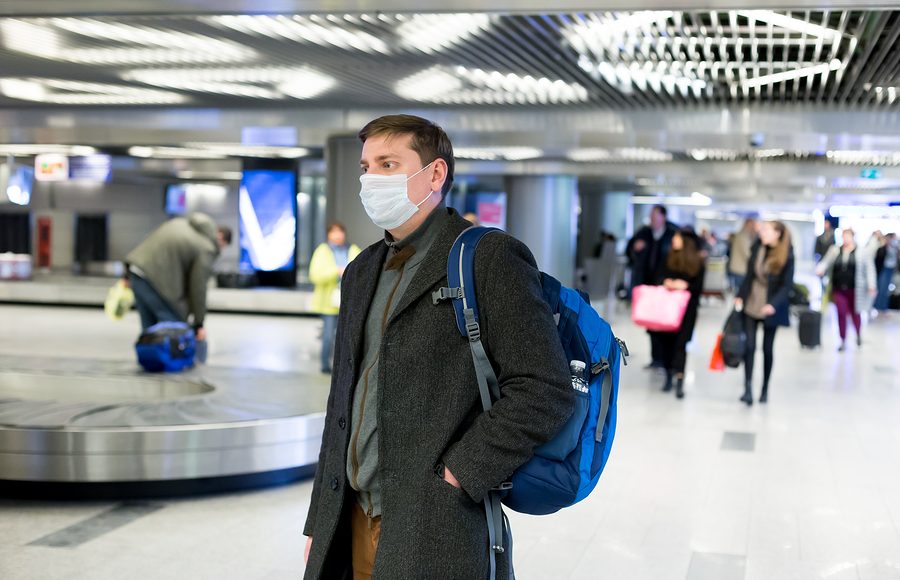
By Enza Ferreri
This article was published in Italy Travel Ideas
Italy has been one of the world's most affected countries for the number of infections caused by the novel coronavirus.
Walter Ricciardi, Italy's representative at the World Health Organization and Professor of Hygiene and Public Health at the Università Cattolica del Sacro Cuore in Rome, very clearly stated: "We [Italy] pay the consequences of not having immediately quarantined people who landed from China. We banned direct flights, a decision that has no scientific basis, and which did not allow us to trace the arrivals, because people were able to stop over and arrive from other places."
Professor Ricciardi was referring to the possibility left open to travellers of, for example, taking a flight from Beijing to Dubai, changing tickets and then heading to Rome or Milan.
Another authority on the subject, famous virologist Roberto Burioni, as early as 7 February was writing:
"The virus in China might be out of control, but it is not here yet. The only chance we have for not letting it in is only, and I repeat only, the quarantine of those who return. All, without distinction. It is not racism, but a simple and elementary measure of self-protection, which costs a little discomfort to the people who are isolated and provides us with infinite security, while avoiding hateful and unnecessary discrimination."
Dr Burioni later declared in an interview to Il Corriere della Sera:
Oh, I know, they called me an alarmist, even a fascist leghista [supporter of the centre-right Lega party], because from the beginning I claimed that isolating people from China was the only effective way to avoid the spread of the virus. I stress: people, not Chinese.As you may have already noticed, the political climate in Italy has over time become excessively, paranoidly fixated against any supposed "fascism" or "racism", even when there is none, to the point of neglecting basic considerations of, as in this case, health and self-preservation.
Something similar happened in many other Western countries: see the example of the street distribution in Canada of bottles of hand sanitiser bearing the message 'Stop the Spread', referring not to Coronavirus but to xenophobia and intolerance. However, such attitudes of "the stigma is worse than the virus" in Italy have had more devastating consequences, due to the actions of the current government, which has been described as "the most unfit in the history of the Italian Republic".
On 31 January, the day after two Chinese tourists who had arrived from Wuhan to Milan Malpensa Airport were discovered as Italy's first two cases of the virus, the leader of the Lega party himself, Matteo Salvini, wrote on Twitter:
"Let me understand … The first two cases of Coronavirus in Italy apparently have quietly landed at Malpensa on 23 January and, without any control, travelled for days across half of Italy, until checking into a hotel in the centre of Rome.
"Is this how the government protects the health and safety of Italians? The Lega for days has been calling for quarantines, checks, blocks and information, but for Leftist politicians and journalists we were 'speculators' and jackals. Let us pray to God that there will be no disaster, but whoever has done wrong must pay."
He also tweeted: “Check every single entry. By sea, by air, by land. While other countries took immediate action, in Italy there was the impression that someone has been wasting time. And you can't play with the health of citizens."
Salvini's words, like Dr Burioni's, were welcomed by insults as well as totally ignored by the government.
Instead, a much more reasonable response came from a Chinese in self-isolation, married and mother-of-three Xia Weihong, 48: the Lega is right, she said to the Libero newspaper.
Italy's Centre-Left government was busy in fighting not an all-too-real virus but an imaginary risk of anti-Chinese racism, as if the highly-justified fear of contagion had been a symptom of dangerous xenophobia.
So we saw the President of the Republic Mattarella visiting a Rome's school attended by Chinese children to show his solidarity; initiatives like "embrace a Chinese" launched by Florence mayor Nardella; politicians and media people eating spring rolls in Chinese restaurants.
Except that, when a few cases of the virus were found in some parts of northern Italy, none of these personages went to embrace inhabitants of the Italian affected area.
Other posts on the subject will follow.
SOURCES
La Stampa
Medical Facts of Dr Roberto Burioni
Il Corriere della Sera
Malpensa 24
Matteo Salvini tweets
Libero
Canadian Hand Sanitiser
Labels:
China,
Coronavirus,
Covid-19,
Current Events,
Europe,
Health,
Immigration,
Italy,
Left,
Medicine,
Pandemic,
Racism,
Science
Thursday, 14 May 2020
Debunking Debunkers: Global Disinformation Index (GDI)

A useful exercise is to debunk the debunkers. I've done it before with the UK's fact-checker Full Fact .
It's particularly important in this coronavirus climate of frantic "fact-checking" and "information-correcting".
An article recently published on the website of the AAAS (American Association for the Advancement of Science) is about a physicist, Danny Rogers, who has co-founded and is Chief Technical Officer of the Global Disinformation Index, with the noble purpose of saving the internet from lies, errors, fake news and what have you.
The first disinformation service he should perform is against some of his own claims during the interview, for example: "QAnon has led to people’s deaths."
This is a wide and sweeping generalisation with no basis in reality. If it refers, as the only tenuous link, to the murder of alleged mob boss Frank Cali by Anthony Comello in March 2019, it is highly flimsy.
Apparently on the advice of his lawyer Robert Gottlieb, Comello pleaded not guilty, since Gottlieb is trying to defend his client as not guilty due to mental defect.
According to documents obtained by the New York Times, Comello wanted to perform a citizen’s arrest on Cali to help Trump, as he believed the Gambino crime family's presumed boss was part of the deep state and that he "was enjoying the protection of President Trump himself" to place Cali under citizen's arrest. When Cali didn’t comply, the documents say, Comello killed him out of fear that Cali would kill him.
What is unclear, among many things, is why Comello thought Cali belonged to the deep state.
The connection of this murder with QAnon, what Leftists call a "conspiracy theory" that Trump and his presidency have been under attack by the deep state, is at the very least dubious.
On the same grounds we could blame any political movement, in most cases with better reason, of "leading to people’s deaths". Many examples come to mind, for instance the 14 June 2017 shooting At Alexandria, Virginia, Congressional Republican Baseball Practice which only for the presence of a security detail by a miracle didn't kill anyone but could have been a massacre,
James T. Hodgkinson opened fire on GOP lawmakers and staffers with a rifle as they prepared for the annual summer baseball game between Republicans and Democrats, wounding several people.
Hodgkinson’s social media profile revealed he was a Left-wing Bernie Sanders supporter who believed President Trump was a “traitor.” In one Facebook post of 3 months before Hodgkinson wrote: “It’s Time to Destroy Trump & Co.”
The AAAS article goes on to say:
GDI’s [the above-mentioned Global Disinformation Index] system analyzes content and context flags which can help assess any domain’s risk of disinformation. It rates the disinformation risk for websites based upon variables that include overall credibility, whether they push sensationalism, whether they contain hate speech, and whether the company embraces sound policies regarding content.Now, since the article is published by the American Association for the Advancement of Science and the "debunking" website with a high-sounding name it analyses is co-founded and headed by a physicist, we would expect some more precision in its chosen criteria than this. What objective characteristics does "overall credibility" entail?
And, even more importantly, how do you define "hate speech"? What does this concept mean? What role can it have in a science-led effort of exposing disinformation?
It's an impossible task to give "hate speech" a role in refuting falsehoods, for many reasons. First of all, hate is a sentiment, an emotion, a passion. As such, it's in the realm of the subjective, not the objective. What you consider hate another may consider simply justice, or telling the truth. There's no objective yardstick for definition, let alone measurement.
Furthermore, "hate" has been overused ad nauseam by the political and cultural Left to stigmatise, place beyond the pale and therefore silence (or at least the Left hopes) its adversaries.
So, this other "fact-checking" enterprise on the face of it seems to be, like so many of the same kind, Leftist propaganda masquerading as a quest for the truth.
PHOTO CREDIT
Pixabay
Subscribe to:
Posts (Atom)

